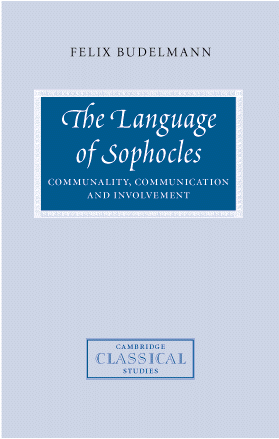Book contents
4 - Gods: a shared future
Published online by Cambridge University Press: 15 August 2009
Summary
INTRODUCTION
In the previous chapter I used the examples of myth and prophecy in Philoctetes in order to describe the contributions invisible entities make to the world of Sophoclean tragedy. Despite their invisibility, they can be traced throughout a play, involving spectators in endless sequences of asking questions and giving answers. They make a play, I suggested, appear both complex and structured, both challenging and lucid. As I said at the beginning of that chapter, the most prominent entities of this kind in Sophocles are the gods. It is to them that I now want to turn.
Gods are everywhere in tragedy. They are in fact not entirely invisible and occasionally appear as characters in the theatre. Much more frequently, however, they remain unseen. Sometimes they are explicitly referred to by their proper names, as ‘gods’, or otherwise. Sometimes they come into a play through their association with oracles (in the case of Apollo), with certain characters (like the Priest of Zeus in Oedipus Rex), through statues on stage, through descriptions of the scenery (like the grove of the Eumenides in Oedipus at Colonus) or, in Athenian performances, through the context of the Dionysia. Sometimes divine presence may be inferred where the gods are less explicitly evoked but, like myth and prophecy in the previous chapter, can be seen in gaps. This last way of perceiving gods has been seen as a typical response to Sophoclean tragedy.
- Type
- Chapter
- Information
- The Language of SophoclesCommunality, Communication and Involvement, pp. 133 - 194Publisher: Cambridge University PressPrint publication year: 1999

